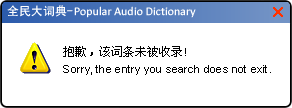作品【zuò pǐn】
works (of literature and art, etc. )
[名]文学艺术创造的成品

莎士比亚的作品赋予他不朽的声名。
Shakespeare’s works have given him immortality.
作为【zuò wéi】
1. regard as; look on as; take as 2. achievement; accomplishment 3. by way of; as
[动]1、当做 [名]2、人在事业中的建树与成就 [介]3 、就人的某种身分或事物的某种性质来说

我把游泳作为锻炼身体的好方法。
I take swimming as a good way to keep fit.

他的才智不够,在治学方面难有大的作为。
Since his talent and intelligence are quite limited, he has little chance to make big achievements in study and research.

作为一个学生,首先得把学习搞好。
As a student, you should put your mind to study.
作文【zuò wén】
1. write a composition 2. composition
[动短]1、撰写文章 [名]2、学生的写作练习

很多作家在作文时总是靠抽烟来寻求创作灵感。
Many writers smoke when writing in order to get some inspiration.

他喜欢在作文中引用谚语。
He likes to quote proverbs in his compositions.
